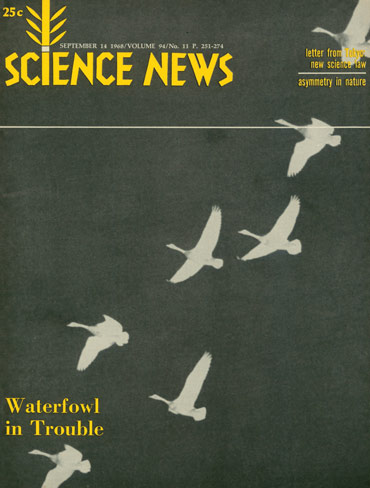50 years ago, a pessimistic view for heart transplants
Excerpt from the September 14, 1968 issue of Science News

CHANGE OF HEART 50 years ago, the first surgeon to perform a human-to-human heart transplant didn’t think his patients would live five years. Now, more than half of patients make it 10 years with new tickers.
Shuttermon/iStockphoto
 Transplanted hearts will be shortlived
Transplanted hearts will be shortlived






